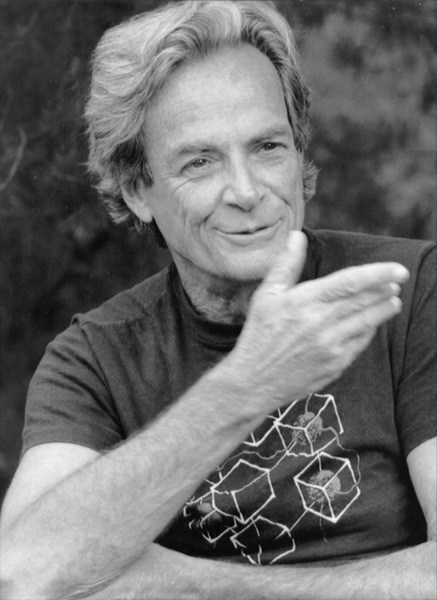Richard Feynman's Ode to a Flower
Syndicated from brainpickings.org, Mar 04, 2018

Nobel-winning physicist Richard Feynman (May 11, 1918–February 15, 1988) was a champion of scientific culture, graphic novel hero, crusader for integrity, holder of the key to science, adviser of future generations, bongo player, no ordinary genius. In this fantastic animated adaptation of an excerpt from Christopher Sykes’s celebrated 1981 BBC documentary about Feynman, The Pleasure of Finding Things Out — which gave us the great physicist’s timeless words on beauty, honors, and curiosity and his fascinating explanation of where trees actually come from — Fraser Davidson captures in stunning motion graphics Feynman’s short, sublime soliloquy on why knowledge enriches life rather than detracting from its mystery, the best thing since that animated adaptation of Carl Sagan’s Pale Blue Dot.
The message at the heart of Feynman’s monologue — to celebrate the beauty of the mysterious, embrace the unfamiliar, and life the questions — is beautiful mantra on which to center the new year.
I have a friend who’s an artist and has sometimes taken a view which I don’t agree with very well. He’ll hold up a flower and say “look how beautiful it is,” and I’ll agree. Then he says “I as an artist can see how beautiful this is but you as a scientist take this all apart and it becomes a dull thing,” and I think that he’s kind of nutty. First of all, the beauty that he sees is available to other people and to me too, I believe…
I can appreciate the beauty of a flower. At the same time, I see much more about the flower than he sees. I could imagine the cells in there, the complicated actions inside, which also have a beauty. I mean it’s not just beauty at this dimension, at one centimeter; there’s also beauty at smaller dimensions, the inner structure, also the processes. The fact that the colors in the flower evolved in order to attract insects to pollinate it is interesting; it means that insects can see the color. It adds a question: does this aesthetic sense also exist in the lower forms? Why is it aesthetic? All kinds of interesting questions which the science knowledge only adds to the excitement, the mystery and the awe of a flower. It only adds. I don’t understand how it subtracts.
Complement with Feynman on the importance of the unknown in science and culture.
This article originally appeared in Brain Pickings and is republished with permission. The author Maria Popova is a cultural curator and curious mind at large, who also writes for Wired UK, The Atlantic and Design Observer, and is the founder and editor in chief of Brain Pickings.


On Mar 4, 2018 Patrick Watters wrote:
I love Feynman, Tyson and others who are able to explain the "beauty" of the cosmos and natural world even to children. I gave my young first-born a book by Feynman when he was about 10yrs old, Dr. Kyle Watters now teaches others and is equally adept at explaining and delighted many. In similar fashion, his brother Prof. Cody Watters does the same with ecology and evolutionary biology. The further steps they both have taken is to acknowledge the "more good going on than we can see and how eternally rich we are in it".
biologos.org
Post Your Reply